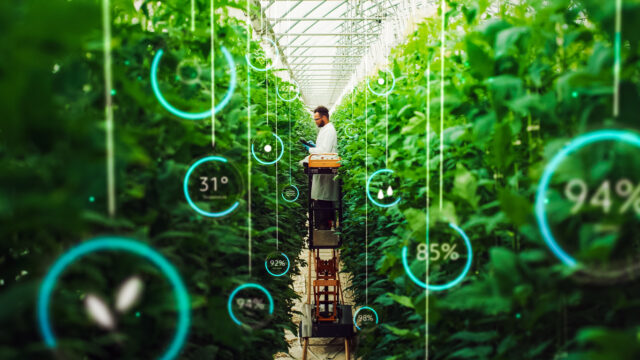Procurement is changing.
That’s something that isn’t lost on Kathryn Thompson, a Partner at Deloitte.
As part of her role, she leads the Sourcing and Procurement Market Offering within Deloitte’s Consulting division in Europe, Middle East and Africa. Originally from Australia, Thompson has worked in procurement since 1996 and has observed quite the evolution over the past two and a half decades.
Procurement’s transition
Over the years, procurement has shifted from a traditional back-office function to an entity operating at the fore of a company’s strategy. Having been involved in the industry for more than 25 years, Thompson has had a front-row seat to procurement’s digital transformation. While she affirms that AI has changed procurement, she isn’t convinced that generative AI is changing the space – yet.

“We see lots of AI tools pulling from different data sources to apply intelligence to different decisions,” she explains. “But the generative part, beyond contract summaries or pulling together draft RFPs, remains to be seen at scale. One of my more sophisticated clients has run 300+ Proof of Concepts in AI across their business, including and beyond procurement, and admits they are yet to scale or drive meaningful ROI from any POC. At the moment, the generative AI side for us, isn’t getting past proof of concept or the pilot stage yet.”
Fraser Woodhouse is a Director at Deloitte and has been with the firm since February 2019. He believes that procurement and sales teams will use gen AI for RFPs over the next six months. “I think they’ll do it without telling anyone,” he explains. “It will eventually get to a point where I think that sort of crutch will become a necessity. When it’s built into the enterprise platforms, people will forget how to write contracts because the AI does it automatically. People will even use it to write their emails.”
The AI dilemma
AI on its own is pointless – it simply doesn’t operate the way you need it to. That’s why the importance of making tech work in a way that creates efficiency has never been more important. For Woodhouse, he insists it’s about putting a human at the right place in the process. “One of the solutions I saw was a gen AI assistant helping write an RFP built in, but then the supplier has a gen AI assistant helping do the response to the RFP as well,” he tells us. “Very quickly you’ve got two AIs negotiating with each other, and that doesn’t work unless a human is curating stuff at that point in the middle.”
Given the ease of AI usage, there is a discussion as to whether tech implementation could go too far the other way. Could humans lose the ability to perform simple tasks they previously wouldn’t have thought twice about? But Woodhouse is quick to dispel that myth and believes that despite the growing reliance on technology, people won’t be rendered useless. “People didn’t forget how to communicate when spellcheck came around, they could communicate better,” he explains. “If you are a supplier and are responding to an RFP and you’re pressing their generative AI button to build the response and five of the other suppliers are doing the same thing, who’s going to stand out? The ones who wrote it themselves or at least edited it and had meaningful input.”
“You can use AI for the transactional, easy stuff but there must be a value underpinning it,” adds Thompson. “The winners are going to be the ones that are human about things.”

Procurement’s place
With such significant innovation happening, it is seen as a transformative time to be in procurement. As automation speeds up, the necessity to upskill new graduates coming into the workforce and encourage them to learn higher-value work earlier in their career journeys is becoming increasingly important.
“Covid and the following work from home attitude has a lot to answer for,” explains Thompson. “Pre-Covid, you would rarely work from home. Consultants, suppliers, delivery partners always went to the client’s site. That’s where innovation, creativity, results that are more than the sum of their parts happen. That’s not replicable by generative AI. We need to get everyone back out there and doing things. Rather than replacing jobs, we’re replacing tasks. The tasks that we’re replacing are the likes of data analysis, synthesising, and summarising. Hopefully, it means we’re doing real-life negotiations, brainstorming and innovation instead which are the things that people love to do. Fingers crossed, it just means the bar goes up.”











